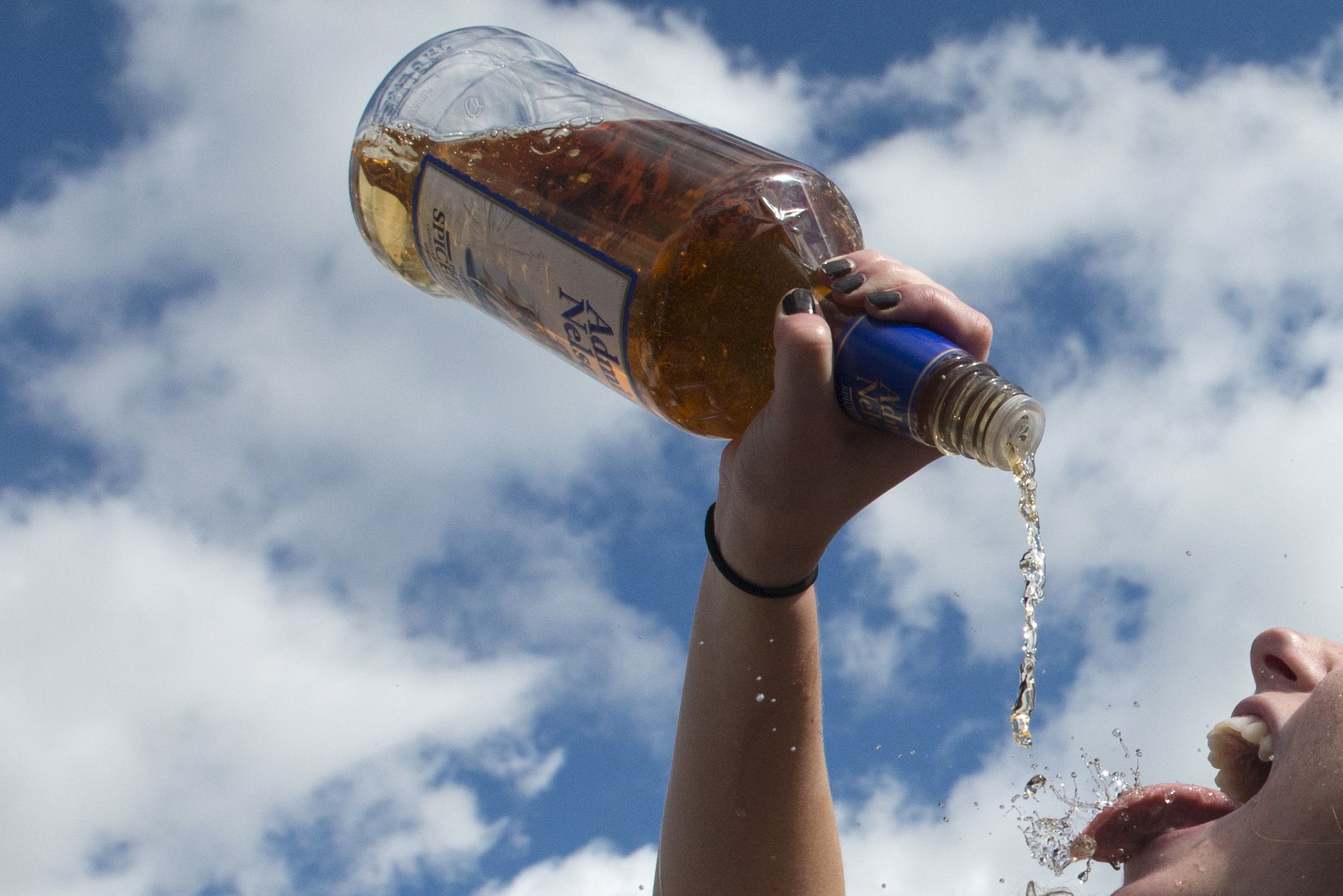
You may think you're a mean drunk. Or a funny drunk. Or even a mellow drunk. But do other people see you that way? A new study by psychologists at the University of Missouri found that many of the mood changes we experience as a result of alcohol are not always so apparent to others—despite what we may think.
Rachel Winograd, clinical psychologist at the Missouri Institute of Mental Health, and colleagues wanted to understand the discrepancy between how we see ourselves and how others see us as the mood-altering effects of alcohol set in. So they conducted a study to see just how obvious alcohol-induced personality changes were to outside observers.
They enrolled 156 participants, a mix of over-21 college students and community members, to drink vodka-and-Sprites in their laboratory for $10 per hour. ("That was my drink in my twenties," says Winograd.) Using a 50-item questionnaire, the participants self-reported their typical sober and drunk personality traits two weeks before the study. For the study, which was carefully scrutinized by the university beforehand, groups of friends sat together, with half the groups given the alcohol-containing drink and half receiving Sprite alone. As they drank, they played a variety of games designed to provoke a range of personality expressions, including competitiveness, bonding and impulsiveness. Twice during the study, they self-reported about the mood changes the alcohol was causing in them.
The researchers recorded the proceedings. Then, about 30 trained research assistants watched the videos and rated the personality changes. According to the report, published in Clinical Psychological Science, the effects of alcohol were sometimes obvious and sometimes completely invisible. In particular, perceived changes in what psychologists call "extraversion" traits were the same for both the drinker and the observer. As the participants felt themselves becoming more gregarious or assertive, the observers could see those changes from the outside.
But those were the only shifts apparent to the observers. Observers were not able to see alcohol making people less neurotic or anxious, for example. Changes in conscientiousness—being fussier or messier—were also hard to spot. "Participants felt like they were really affected by alcohol," says Winograd, "whereas observers didn't perceive such drastic changes." Only changes in the extraversion traits were abundantly obvious to the observers.
The findings provide useful insights for people who worry about how they seem to others when they drink. "What we think about ourselves may not always be what other people see," says Winograd, "for better or worse."
Winograd is interested in studying whether offering reflections on what changes dominate their drunk personality to people dependent on alcohol could help reduce such dependence. "This type of personalized feedback as part of an alcohol intervention could help people make greater gains," says Winograd. Winograd also hopes to study drunk personalities within different cultural groups—say, only females or only males—outside of the laboratory, "in their natural drinking environment."
Catharine Fairbairn, a psychologist at the University of Illinois at Urbana-Champaign, who studies how alcohol impacts social interactions, confirms the potential usefulness of such an approach, particularly for people who transform dramatically under the influence of alcohol. "A reflection on such personality effects could be highly motivating to some patients," says Fairbairn, who was not involved in the study. Considering the storied history of drunk personalities serving as clues to underlying alcohol problems, says Fairbairn, "scientists have been oddly silent on personality changes associated with alcohol." The present findings, she says, "begins to fill the gap."
After the drinking portion of the study, participants had to stay at the laboratory until they scored below .04 on a Breathalyzer. They ate Hot Pockets while they sobered up. One group tried to have a friend bring a joint to the laboratory. It seems some aspects of drunk personality are entirely predictable.
Uncommon Knowledge
Newsweek is committed to challenging conventional wisdom and finding connections in the search for common ground.
Newsweek is committed to challenging conventional wisdom and finding connections in the search for common ground.
About the writer
Jessica Wapner is the science editor for Newsweek. She works with a talented team of journalists who tackle the full spectrum ... Read more
To read how Newsweek uses AI as a newsroom tool, Click here.








